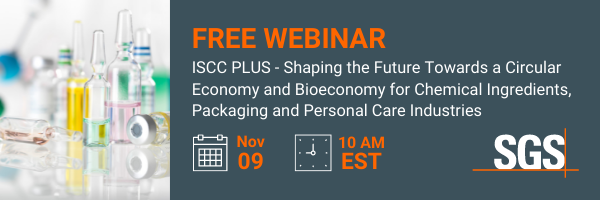Regulations & EHS&S
What is ‘Associate Membership’ of ECHA? 7th March 2018
By our Editorial team
The British Prime Minister has announced that the UK wishes to seek "associate membership" of the European Chemicals Agency

The British Prime Minister has announced that the UK wishes to seek “associate membership” of the European Chemicals Agency (ECHA) as part of the country’s withdrawal from Europe.
Background
When the people of Britain voted for a British exit – now commonly dubbed Brexit – from the EU in an historic referendum on 23rd June 2016, few could have understood its full implications. With impacts on customs control, immigration, academic research, international agreements and the economy, to name just a few, governing bodies in the UK – and anyone wishing to deal with the country after 29th March 2019 – certainly have their work cut out for them.
When the people of Britain voted for a British exit – now commonly dubbed Brexit – from the EU in an historic referendum on 23rd June 2016, few could have understood its full implications. With impacts on customs control, immigration, academic research, international agreements and the economy, to name just a few, governing bodies in the UK – and anyone wishing to deal with the country after 29th March 2019 – certainly have their work cut out for them.
One of the primary concerns of the UK’s Chemicals Industries Association (CIA), which was early to offer its own ‘Brexit Manifesto’ as soon as July 2016, was an impact on regulatory matters. For example, would existing REACH approvals remain valid? Would mutual recognition between the UK and EU be feasible? Was this an opportunity to reduce red tape, or was Brexit going to add yet another layer of complexity?
The UK is a leading global chemical producer, with the chemical industry adding £14 billion of value to the UK economy every year, from a total annual turnover of around £40 billion. This is a vital part of the Brexit negotiations that the UK government cannot afford to get wrong.
One wishes to explore…
On 2nd March 2018, the British Prime Minister, Theresa May, told an audience in London that the UK wishes to “explore with the EU the terms on which the UK could remain part of EU agencies, such as those that are critical for the chemicals, medicines and aerospace industries – the European Medicines Agency, the European Chemicals Agency, and the European Aviation Safety Agency”.
On 2nd March 2018, the British Prime Minister, Theresa May, told an audience in London that the UK wishes to “explore with the EU the terms on which the UK could remain part of EU agencies, such as those that are critical for the chemicals, medicines and aerospace industries – the European Medicines Agency, the European Chemicals Agency, and the European Aviation Safety Agency”.
In return, the UK would be willing to abide by the rules of those agencies and make appropriate financial contributions. Many in the industry heaved a sigh of relief at this suggestion. After all, such an ‘associate membership’ would provide assurance that products would only need to undergo one series of approvals, and this would benefit companies in the UK, as well as those in the EU that trade with the UK.
In a press release issued on 2nd March 2018, the CIA urged industry, trade unions, NGOs and all political parties to work to achieve the Government’s aim of associate membership of the European Chemicals Agency as part of a post-Brexit future.
Steve Elliott, Chief Executive of the CIA said, “Today’s statement by the Prime Minister is an encouraging step forward, which acknowledges our industry’s long-standing call for regulatory consistency in leaving the European Union…. we would urge the UK and EU negotiating partners and all of the European chemical industry to respond positively to this initiative, keeping in mind the desired aim of minimal disruption to EU chemicals trade and investment as an outcome from Brexit”.
Obstacle race
However, the enthusiasm of industry bodies and affected companies must be tempered by caution – a number of unanswered questions remain.
However, the enthusiasm of industry bodies and affected companies must be tempered by caution – a number of unanswered questions remain.
For example, in the case of REACH registrations, it is unclear whether this single approval is to be granted by the European Medicines Agency (EMA), or by a new UK agency that would then be mutually recognised by Europe. In fact, it seems highly unlikely that the EU would mutually recognise registrations within a new UK system that did not comply with all existing EU regulations. Most likely, any possible ‘associate membership’ of ECHA would encompass a commitment to follow EU laws.
History supports this assumption – Brexit may be unique, but that does not mean there are no precedents for reference. In 2008, Switzerland – which exported about 60% of its chemicals to the EU at the time – was denied membership of REACH. In order to avoid a similar fate, the UK would need to commit to following all EU decisions on chemicals, and any notions of independent UK legislation would need to be abandoned. This would extend to include all EU decisions on chemicals manufacturing, inspections, data collection and evaluation, worker health and safety, and industrial emissions.
It is unclear how this would work in practice. Certainly, the UK has the expertise and experience to deal with such a situation, but the organization and infrastructure for dealing with a new system that works alongside ECHA needs to be devised and implemented.
Other commentators have also picked up on Mrs May’s references to “substantially similar” regulatory standards between the UK and EU, and the fact that she appeared to retain an option for breaking away from EU “standards and outcomes”. These issues may raise serious concerns within the EU who are most likely to demand full and total compliance with EU regulations.
And all the while, the clock is ticking.
With only 12 months to achieve agreements on these and a range of other topics, a number of obstacles still need to be overcome if the UK’s chemical industry is to remain open for business as usual after March 2019.



